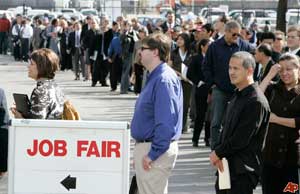 NEW YORK – Girding rumors circulating for months that Playboy Enterprises is up for sale, the New York Post’s Keith J. Kelly put some meat on the story Friday when he pegged the amount sought by the iconic lifestyle brand at $300 million.
NEW YORK – Girding rumors circulating for months that Playboy Enterprises is up for sale, the New York Post’s Keith J. Kelly put some meat on the story Friday when he pegged the amount sought by the iconic lifestyle brand at $300 million.
Kelly describes the offer as being “quietly shopped around,” but that’s only if the roar of a 747 qualifies as quiet. Word on the adult street is that no suitors are lining up to shell out anything close to what the bunny believes it is worth.
There are troubled murmers from within, as well. Sources recently told Daily Babylon that there is growing realization by some at the company that a year from now it may exist purely as a merchandising enterprise, its many ancillary properties sold off or closed down, the storied Playboy mansion used solely as a hosting facility for corporate parties – a service it has offered for years – and the flagship magazine no longer in print, though with all of its past issues digitized and archived online.
According to Kelly, despite a market capitalization hovering around $100 million, the “battered” company is asking for three times that amount as an inducement for Hugh Hefner to sell the company he founded in 1953, revolutionizing publishing, celebrity and sexual mores in the process.
“Sources said the sellers are looking for far more than the company’s market capitalization because that would ensure Hef has enough on hand to maintain his lavish lifestyle,” Kelly says. “He still controls about 70 percent of the voting stock, and as of March 31, the second-biggest shareholder was Wells Capital, which held a 10 percent stake. Fidelity is third at 7 percent… Sources said that James Griffiths, a former president of the entertainment group, has been involved in the potential sale process.”
Recently, Hefner is quoted as saying that one of his biggest regrets was taking Playboy public, a remarkable confession by one of the great American success stories and a de facto admisssion that Playboy’s long-term strategies have in the end lost out to the more self-contained route taken by the still privately-owned Hustler, which appears to be weathering the recession far better than its traditional competitors, mostly due to its flexibillity, diversification and more tightly-intergrated branding philosophy.











No Comment